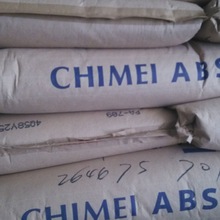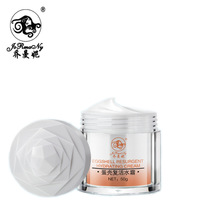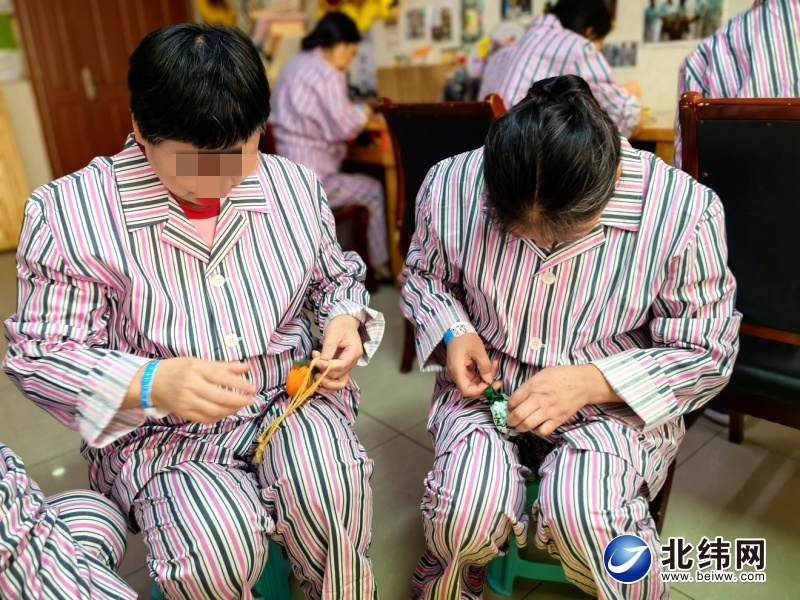[Roundtable] Kim Jong
By Oh Young-jin
First, most of us felt that it couldn't be real.
Then, that sense of incredulity gave in to a hint of hope, "maybe."
Now, it is moving to "this time, it could be different."
This has been the emotional sequence over the past couple of months since the PyeongChang Winter Olympics. Kim Yo-jong visited the South as her brother and North Korean dictator Kim Jong-un's special envoy, inviting President Moon Jae-in for a trip to the North.
Then, Moon's envoys went to the North, returning with Kim's proposals for inter-Korean and North Korea-United States summits.
 RoundtableMoon rises as the stars align over Koreas 2018-04-15 15:43 RoundtablePostal exchanges with N. Korea 2018-04-15 15:40 RoundtableSolid steps needed on denuclearization 2018-04-15 16:38 | North Korea The 34-year-old leader went on a not-so-secret trip to China and had a summit with Xi Jinping, China's leader. It was Kim's first major trip outside the country. The two Koreas held a series of talks to fix the summit date as April 27.
RoundtableMoon rises as the stars align over Koreas 2018-04-15 15:43 RoundtablePostal exchanges with N. Korea 2018-04-15 15:40 RoundtableSolid steps needed on denuclearization 2018-04-15 16:38 | North Korea The 34-year-old leader went on a not-so-secret trip to China and had a summit with Xi Jinping, China's leader. It was Kim's first major trip outside the country. The two Koreas held a series of talks to fix the summit date as April 27.Pyongyang and Washington are revealed to have conducted talks to decide what they would discuss. U.S. President Trump insisted on nothing less than complete, prompt denuclearization. The North incredibly showed a willingness to do so, or so it seems.
A reality check is needed on whether the North will voluntarily disarm itself.
The North is a poor country and its dictator uses its weapons of mass destruction ― nuclear weapons and missiles ― as a tool to prevent its big neighbors from pushing it around.
So giving those weapons up would mean the loss of a key tool for self-protection and put its fate at the mercy of other countries. No dictator in his right mind would commit such a suicidal act.
There is the Libyan lesson ― its dictator Gaddafi was overthrown and killed by his detractors soon after he took a western offer to give him security guarantees in return for renouncing unconventional weapons programs. Would Kim choose to go down Gaddafi's path? No. Would Kim be naive enough to believe he can succeed where the Libyan leader failed? No.
Kim has also used the weapons programs as a propaganda tool to distract its population from hardships, keep the elite on their toes and give the nation a sense of purpose ― going head to head with its sworn enemy, the U.S.
What would Kim propose giving to North Koreans in return? A capitalist paradise where no material things are in shortage? The northerners wouldn't be as credulous as to believe that.
That means Kim likely has little intention to separate himself from his nukes and missiles. At the same time, he would want to lessen the pressure from international sanctions.
In other words, he is back at his old waiting game until the world is again distracted by other pressing issues. After all, it has worked before. Kim would say to himself, "why not this time?"
Oh Young-jin (foolsdie5@ktimes.com, foolsdie@gmail.com) is the digital managing editor of The Korea Times.
(责任编辑:关于我们)
 First officially approved Gen IV nuclear reactor in the US breaks ground
First officially approved Gen IV nuclear reactor in the US breaks ground Noor Salman’s mistreatment is not connected to Omar Mateen’s motivations.
Noor Salman’s mistreatment is not connected to Omar Mateen’s motivations. Amazon accused Trump of bias, and now Microsoft's $10 billion JEDI cloud contract is on hold
Amazon accused Trump of bias, and now Microsoft's $10 billion JEDI cloud contract is on hold Watch Blue Ivy scold her grandma for Instagramming at the Paris Ballet
Watch Blue Ivy scold her grandma for Instagramming at the Paris Ballet Tesla issues recall for 9,100 Model X cars
Tesla issues recall for 9,100 Model X cars
- To Russia, with Love
- Tim Cook's new Twitter name calls out Trump's 'Tim Apple' flub
- 粤湘合作共建产销平台,广东农业奏响时代强音
- The balanced budget amendment is deeply stupid.
- By a technicality, August's full moon is blue. Here's why.
- Influencer shows off gold Razr, but what is going on with her jeans?
- Android cofounder's phone startup Essential shuts down after launching one product
- New cases in 600s for 2nd day amid vaccination campaign
-
Cicadas love to land on people. Experts explain why.
 Even on an Air Force base tarmac, a cicada landed on the president's neck. The spectacular emergence
...[详细]
Even on an Air Force base tarmac, a cicada landed on the president's neck. The spectacular emergence
...[详细]
-
People turned this list of Bible verses into a meme for their favorite songs
 A Twitter user's list of Bible verses took an unexpected turn when it became a meme.It all started w
...[详细]
A Twitter user's list of Bible verses took an unexpected turn when it became a meme.It all started w
...[详细]
-
Will Korea Golf Association hold tournament in North Korea?
 Korea Golf Association President Lee Jung-myung speaks during his inauguration ceremony at a hotel i
...[详细]
Korea Golf Association President Lee Jung-myung speaks during his inauguration ceremony at a hotel i
...[详细]
-
Silicon "sandwiches" make for lightweight, high
 The pursuit of better batteries means the exploration of alternative materials, and one that scienti
...[详细]
The pursuit of better batteries means the exploration of alternative materials, and one that scienti
...[详细]
-
CrowdStrike outage is still causing hundreds of flight cancellations daily
 Three days after a faulty update in cybersecurity company CrowdStrike's software caused a global IT
...[详细]
Three days after a faulty update in cybersecurity company CrowdStrike's software caused a global IT
...[详细]
-
Belgian envoy’s wife to avoid punishment for alleged assaults
 Blurred surveillance footage, obtained by Yonhap News TV on Tuesday from the family of one of the ac
...[详细]
Blurred surveillance footage, obtained by Yonhap News TV on Tuesday from the family of one of the ac
...[详细]
-
Stephon Clark rallies: Hundreds take to the streets in Sacramento to demand justice.
 Hundreds of people got together in two separate rallies on Saturday to demand justice for Stephon Cl
...[详细]
Hundreds of people got together in two separate rallies on Saturday to demand justice for Stephon Cl
...[详细]
-
This might be the most impressively complicated handshake you'll ever see
 The only thing better than a solid handshake is a solid secrethandshake that can't be duplicated. Tw
...[详细]
The only thing better than a solid handshake is a solid secrethandshake that can't be duplicated. Tw
...[详细]
-
 患者制作香囊“这是我们自己做的香囊,有安神助眠、除湿等功效,价格不贵,10元钱一个。”8月14日,雅安市第四人民医院门诊大厅的“爱心义卖”吸引了医院里不少人的目光。售卖香囊的是该院精神康复科的患者,售
...[详细]
患者制作香囊“这是我们自己做的香囊,有安神助眠、除湿等功效,价格不贵,10元钱一个。”8月14日,雅安市第四人民医院门诊大厅的“爱心义卖”吸引了医院里不少人的目光。售卖香囊的是该院精神康复科的患者,售
...[详细]
-
[Newsmaker] Seoul prosecution chief indicted over power abuse allegations
![[Newsmaker] Seoul prosecution chief indicted over power abuse allegations](http://res.heraldm.com/content/image/2021/05/12/20210512000561_0.jpg) Lee Sung-yoon, chief of the Seoul Central District Prosecutors Office, heads to his office in Seoul
...[详细]
Lee Sung-yoon, chief of the Seoul Central District Prosecutors Office, heads to his office in Seoul
...[详细]
What to expect from Apple's September event: iPhone 16, Apple Watch 10, and more

Trump should have accepted Democrats’ border wall offer.

- Project 2025 Comstock Act: Trump’s new abortion comment exposed.
- Tsitsipas gets revenge on Tiafoe to make Olympics third round
- NK propaganda outlet slams S. Korea's biennial integrated defense drill
- Best friends crash a date wearing hilarious disguises
- Bernie Sanders’ DNC speech sounded like everyone else’s. That’s astonishing.
- Twitter's Jack Dorsey tweets a bummer of a WikiHow on Valentine's Day
- “红盾春雷2018”行动: 我市130起违法案件被立案查处
